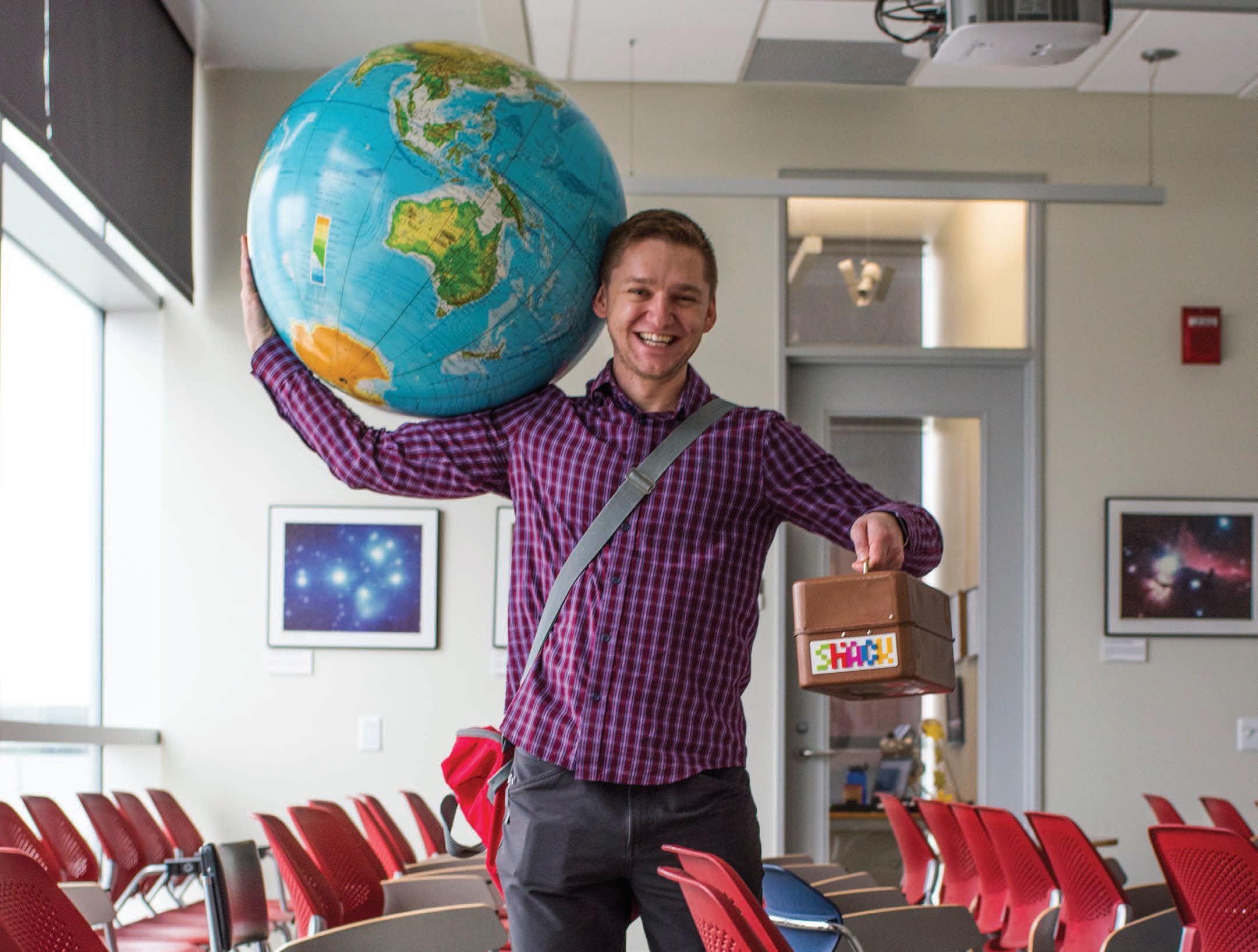
Ross Lockwood ('08 BSc, '15 PhD)
My postsecondary career likely started in a way that many students and alumni of the University of Alberta have experienced-with uncertainty, indecision, and trepidation. After growing up in a small town in British Columbia, moving away from my family, friends, and community was a difficult choice and a big commitment. My goal was to complete a bachelor of science before attending medical school to become a doctor. Little did I know that I would become a different kind of doctor at the U of A....
I began my undergraduate experience by declaring a physics major and biology minor-both good choices for aspiring physicians. In my first year, I elected to make my science options physics and chemistry, saving the biology courses for the future. It wasn't long before I discovered that I had a much greater interest--and talent--for physics. When it came time to graduate, I had taken a sum total of zero biology courses, and I had to drop my biology minor (which I happily did, with no offense to the biologists in the crowd)!
It was during my undergraduate in physics that I met and began working with the professor who became my PhD supervisor, Al Meldrum. Over the course of my undergraduate degree, I took many small, halting steps in a field of research that would eventually turn into my doctoral thesis: firing high-powered lasers at silicon quantum dots (nanoscale balls of silicon), measuring how they change colour in response to environmental conditions. Working with my supervisor was a privilege and a pleasure, even if the better part of my five-year doctoral work was done in a dark, underground laboratory.
Throughout my undergraduate and graduate education, I worked, volunteered, and cultivated my passion for science and communication. While I was accomplishing my academic goals, I sought new goals that have seen me become a SCUBA instructor, simulate the life of an astronaut on Mars (which you might remember reading about in the Fall 2015 issue of Contours), and apply (but fall short) of the recent Canadian Space Agency astronaut recruitment campaign. Don't worry, I'll reapply next time. The flexibility and courage to explore all of these avenues and more over my nine-year academic career was facilitated by world-class professors, administrators, and colleagues-not to mention all of the incredible alumni that have helped, and continue to help me along the way.
Now, I am taking the first small steps in the beginning of my career. Although I didn't become the medical doctor that I set out to become, I'm confident that if the universe called in sick, I could diagnose the problem as a doctor of physics. The greatest gift that the University of Alberta and the Faculty of Science gave me was the inspiration to discover my true strengths and passion, for which I am immeasurably grateful.
Editor's note:
Ross Lockwood is now the Faculty of Science's alumni representative on the University of Alberta's Alumni Council. He'd love to hear from you about how the U of A and Faculty of Science can engage you as an alum.
Also, Lockwood, along with Sharon Morsink, Associate Professor in the Department of Physics and Director of the U of A Observatory, is a driving force behind one of the Faculty of Science's newest MOOCs, exploring black holes and cosmology, currently in production and set for release in 2018.